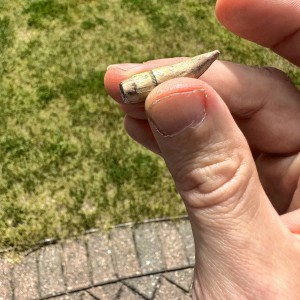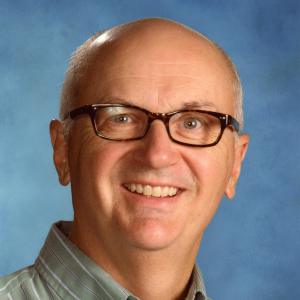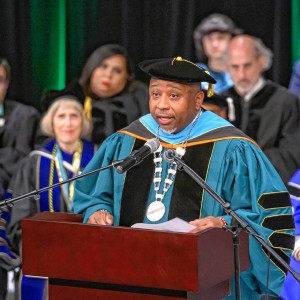Coping after a month riddled with gun violence and terrorism
| Published: 07-21-2016 8:19 AM |
When the planes decimated the Twin Towers in 2001, Jim McGorry watched on the television in his darkened bar, Ye Ol’ Watering Hole on Pleasant Street in Northampton. It was 10 a.m. and the bar was closed, but people pounded on the door and he let them in.
They gaped at the carnage and learned about a new kind of terror — one that eroded confidence and security, that had them fearful even in places they presumed were untouchable.
This brand of fear has grown all too familiar since 9/11, McGorry said, and so has the nation’s post-violence routine, repeated almost to the point of numbness for some.
Like many people across the country, those in the Pioneer Valley search for guidance and peace in the wake of tragedy. They head to churches, psychologists and bars. They cling to their families, and parents struggle to answer their children’s questions.
Collectively, they puzzle over the hows and whys, lament losses and pray they won’t have to do this again.
Half an hour after his bar opened Monday, McGorry was serving Coors Light and joking with a handful of customers who’d already come through the door. The television was tuned to ESPN, but other channels were thrumming with the buzz of the Republican National Convention in Cleveland and an ax attack by a man later identified as an ISIS fighter on a train in Germany.
Inevitably, conversations bubble up about the news, but McGorry said he tries to keep them below a boiling point. Most people know better than to mix alcohol and religious or politically charged chit-chat, he said.
“Regulars come in here and they get talking about how the world’s gone haywire, but generally it’s pretty tempered,” McGorry said. “As long as we don’t have everyone jumping up and down and hollering at each other it’s OK.”
Article continues after...
Yesterday's Most Read Articles
 Holyoke man finds bear paw in his yard
Holyoke man finds bear paw in his yard
 Developer lands $400K loan for affordable housing project in Easthampton mill district
Developer lands $400K loan for affordable housing project in Easthampton mill district
 Petition to block auto dealership on King Street falters in Northampton
Petition to block auto dealership on King Street falters in Northampton
 Fearful Belchertown residents blame stray bullets on nearby gun club, appeal to town for help
Fearful Belchertown residents blame stray bullets on nearby gun club, appeal to town for help
 South Hadley man fatally shot in attempted robbery
South Hadley man fatally shot in attempted robbery
 First look at how little Amherst’s police alternative being used called troubling
First look at how little Amherst’s police alternative being used called troubling
Some customers voice their fears to McGorry about the plight of the country and the threats that darken otherwise celebratory events like the Olympics.
For his part, McGorry feels like something vital has been broken or lost.
“I think the world’s gone insane,” McGorry said.
Since she was ordained in 2011, the Rev. Jennie Valentine has grown accustomed to fielding the same strand of questions at First Congregational Church of Southampton.
“What is happening to the world?”
“Why are people doing this?”
“Has God abandoned us?”
“What can we do to stop it?”
Both within the physical walls of the church and the bounds of its community, Valentine said she tries to provide a forum for people to voice their fears and help each other to process them.
“A couple of weeks ago I rearranged my sermon so we could address the issue without having to stop everything,” Valentine said. “My place is to acknowledge horrors are happening but also to remind them that God is with them in the pain and sadness and fear of what’s going on.”
With a sense of supportive community more important than ever, Valentine and her congregation have tried to reach out as much as possible. They held a vigil for the victims of the Orlando gay nightclub shooting in June, dedicated a new playground in the center of Southampton, and in the fall will host a panel with local Muslims to dispel myths surrounding their religion.
Valentine encourages the members of her congregation to remain hopeful and do what should come naturally — love one another — especially when they feel adrift and afraid.
“We cannot individually do any one thing to stop this,” Valentine said. “But we can support each other and love each other through this, and we can educate ourselves so we can stand tall in the face of the fear.”
In certain communities, some tragedies strike harder when they happen somewhere that looks like home, said Marianne Yoshioka, dean of the School for Social Work at Smith College. Then comes a nagging fear, a heavier degree of empathy. This could have happened here. That could have been me. That could have been my family.
Social workers in poor, minority areas try to help people who are particularly rattled by tragedies and injustices with police brutality. While social work often helps people manage addictions or mental illness, find jobs or provide for their families, it can also involve advocacy — helping people to process their grief and frustration and act on it in a meaningful way.
“Social workers try to empower people in these communities to find their voice and use it in ways that will bring about change, to make sure they feel seen and are having their humanity recognized,” Yoshioka said.
Social workers are trained to deal with social issues like racism so they can navigate them while out in the field.
“We have soft courses on race and racism and we talk about oppression all the time,” Yoshioka said. “Of course we can’t fix systemic oppression entirely, but we can try to mitigate the toll it has and try to thwart the ways it operates.”
Many social workers are drawn to disadvantaged communities because they come from similar ones, and have firsthand experience with the pain and anger their people feel.
“For many social workers, what is happening cannot be separated from themselves,” Yoshioka said. “They come from these places, which is what makes them want to help.”
Bonnie Johnson of Amherst sat in the shade at that town’s Mill River Pool while her 5-year-old twins, Andre and Keisha, splashed about in matching blue rash guards. As she mediated a dispute over goggles, she spoke of her teenage son, Malik.
As a young black man and aspiring police officer, Malik, 15, feels tied to two groups that have made headlines with their violent collisions, most recently in Dallas and Baton Rouge, Louisiana.
“My son is very intelligent and he pays a lot of attention,” Johnson said. “These problems are not facing everyone, but he’s feeling it on both sides.”
While Malik doesn’t often discuss these issues with his mother, Johnson has tried to encourage him to stay educated, even-keeled and open-minded.
“Not all cops are bad and not all cops are good,” she said. “The same can be said of anyone. Nothing is ever black and white.”
Johnson sees the pressure of recent events bearing down on her son, and does what she can to help ease it. She has taught him about the history that has contributed to the current turmoil and to understand opposing forces.
“With all the bombings and shootings lately, it’s getting really bad,” Johnson said. “But the world is not always the nicest place. You have good and you have bad and it’s always going to be that way.”
While her daughter Zora, 7, turned round-offs and handsprings on the parched grass outside the Hampshire Regional YMCA in Northampton, Barbara Krauthamer applauded from a nearby bench.
Zora is too young to be preoccupied with the violence wracking the country, but her brother Max, 9, has plenty of questions. When he notices the newspaper headlines or hears the stories on the radio, Krauthamer said she tries to be honest without terrifying him.
“We’re a multiracial household, so we’ve had plenty of discussions about Black Lives Matter and racism,” said Krauthamer, of Northampton. “Generally, we just say that when people are racist they make very bad choices that hurt people.”
While she wants her children to be aware of the tensions swirling around them, Krauthamer said she has tried to scale back these discussions lately. Like many parents, she doesn’t want her children to grow up desensitized to the violence that has scarred the country.
“We’ve tried to make it a less common point of discussion,” Krauthamer said. “They know killing is wrong across the board — it’s very simple.”
Zora flopped across her mother’s lap after she finished the trick, curls untamed by her pink headband and spilling across her face. Krauthamer held Zora and congratulated her on her feats of flexibility and told her to go try again.
Zora shook her head and groaned.
“I’m too tired. I wanna go home.”

 A Look Back: April 20
A Look Back: April 20 New HCC president reflects on journey: Timmons sees his own struggles and arc in students’ paths
New HCC president reflects on journey: Timmons sees his own struggles and arc in students’ paths Historic murals restored at Victory Theatre in Holyoke
Historic murals restored at Victory Theatre in Holyoke
